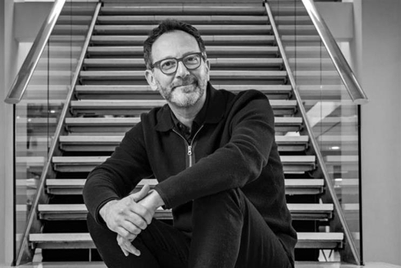.jpg&h=570&w=855&q=100&v=20250320&c=1)
Brands are constantly in our lives—our food, clothes, appliances, homes, holidays, everything today comes with a brand attached.
This omnipresence of brands around us gives them immense power over our mental health. Are we eating the healthiest food? Wearing the nicest clothes? Purchasing the most advanced phones? Living in the safest homes? Going on holiday in the right places?
We’re constantly faced with decisions, and choosing the best-branded products and services makes us feel confident and fulfilled.
No wonder today’s Gen Z customers are facing unprecedented levels of stress. While previous generations were exposed lesser to advertising, today, ads are everywhere and keep reminding us of the things we need to purchase to be happy.
Social media has revolutionized how we communicate and how brands communicate with us. The upsides are countless, but social media is a constant reminder of the things we do not have.
In this context, it is no surprise that rates of depression, self-harm and suicide among Gen Z are rising.
Looking more in specific at the past two years, a study conducted by Global Web Index indicated that 50% of Gen Z say their mental health got worse, compared to 37% of baby boomers.
Brands can make a huge difference.
Marketers can make a huge difference.
Connecting with consumers not just to promote a brand but to build a deeper emotional connection that goes beyond the product and explores addressing and advocating for causes such as mental health is more likely to help make long-lasting and deeper relationships with them.
According to a study conducted by Accenture, 52% of global consumers are attracted to brands that stand for something bigger than just the products and services they sell, and 50% are likely to purchase from brands that support and act upon causes believe in.
On the mental health front, this would mean showcasing the support they offer to their company’s employees and trying to do their bit to spread awareness, lend support and destigmatize conversations about mental health.
Even more important is the authenticity of the approach taken by brands. Choosing the right platforms and methods that will add maximum value to consumers’ lives while still being relevant to the brand is essential to building credibility among consumers.
Some great examples of brands that have done it right:
- Nike released the In My Feels Air Max 270s, which were guest designed by therapist Liz Beecroft and raised funds for the American Foundation for Suicide Prevention. Mental health was incorporated into the shoe’s design with a reinterpreted wavy swish logo to reference the peaks and valleys of emotional lives. This gave consumers the chance to contribute to raising funds for a cause they believed in and to be walking advocates of mental health awareness.
- Lululemon partnered with the UN Foundation to create Peace on Purpose, a library of online audio guides covering topics like finding calm, working with anxiety, managing loss and grief, and responding to challenges.
- Maybelline New York launched the “Brave Together” website to advocate for people living with anxiety disorders and depression - the brand partnered with Crisis Text Line to provide access to free, confidential counselling via text messages.
- Boohoo launched a social media campaign that included a series of open, honest conversations with Instagram influencers about challenges they’ve experienced and ways they’ve addressed their mental health.
- Backpack manufacturer JanSport launched a campaign accompanied by the hashtag #LightenTheLoad calling on people to share their experiences of mental issues helping to normalize conversations about it.
Much like the mental health recovery process, the road to creating a world where brands use their roles as employers and businesses to destigmatize mental health illnesses is a long and tedious yet fulfilling one.
Sheetal Naroth, senior insights and strategy executive and Annieke Puylaert, marketing and PR manager APAC at M&C Saatchi Performance



.jpg&h=334&w=500&q=100&v=20250320&c=1)

.jpg&h=334&w=500&q=100&v=20250320&c=1)
.jpg&h=334&w=500&q=100&v=20250320&c=1)

.jpg&h=334&w=500&q=100&v=20250320&c=1)
.jpg&h=334&w=500&q=100&v=20250320&c=1)
.jpg&h=334&w=500&q=100&v=20250320&c=1)

.jpg&h=268&w=401&q=100&v=20250320&c=1)


.jpg&h=268&w=401&q=100&v=20250320&c=1)
+(900+x+600+px).png&h=268&w=401&q=100&v=20250320&c=1)

+(900+x+600+px).jpg&h=268&w=401&q=100&v=20250320&c=1)
